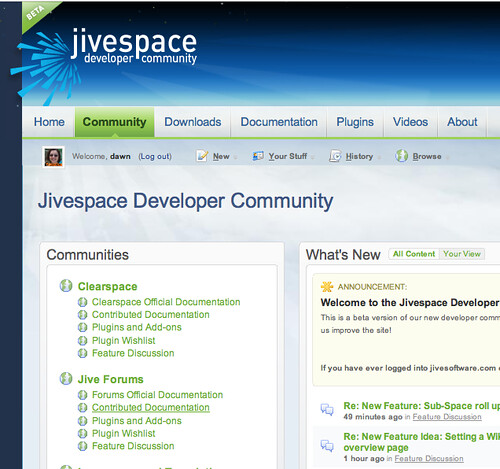I just finished Connect! A Guide to a New Way of Working by Anne Zelenka. Connect is all about web workers, those people who spend all or part of their time working remotely over the web either as telecommuters, freelancers, or some other online working arrangement. When I was at Compiere, I spent about 6 months working remotely, and I could have used a book like this. Based on what I learned from my experience, this book was right on target and offers great advice to people interested in working over the web with good coverage of both the good and the bad aspects. While the flexibility was great for me, you can go a little stir crazy, and Anne has a lot of ideas to help minimize the issues inherent in working from home.
In addition to the basic information about web working, some of the related ideas in the book really helped define some of what I have been noticing over the past couple years that seem to he changing the way people work. Anne makes a great distinction between knowledge work and web work. With knowledge work, the focus has been on the corporation, proprietary technologies, desktop tools, and knowledge, but in contrast, web work is focused on individuals, open technologies, web tools, and relationships. When I was at Intel, the focus was more on knowledge work, but I am noticing that at Jive, the focus is on web work as Anne defines it with collaboration, openness, and relationships being of utmost importance. As an community person, I am definitely more suited to the web work model.
Busy vs. bursty is also a common theme throughout the book. Busy work is based on work hours, email, company relationships, inflexible long-term planning, and web surfing as a time waster, while bursty work is about getting the job done regardless of hours worked, collaboration tools instead of email, relationships that are broader than just your company, agile planning, and web surfing as fuel for ideas. This isn’t to say that you can replace all of the busy work with bursty work; you still need some amount of busy work to get through the tedious, but necessary tasks. However, bursty work also has a place, and again it tends to be more in the style of how we work at Jive and is more suited to my personal style of working.
I will admit to skipping over a couple of sections, like technology recommendations for home work systems, since I have an in depth knowledge of some of these topics based on my recent experiences as a web worker. Even if you aren’t a telecommuter or freelancer working mostly over the web, I still recommend the book and Web Worker Daily, the companion web site. It has a lot of interesting ideas for how work is changing as we move more and more of our lives online.

